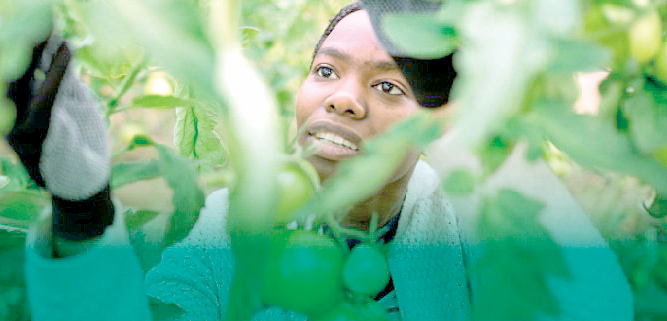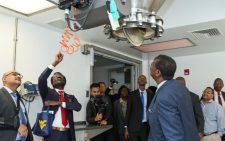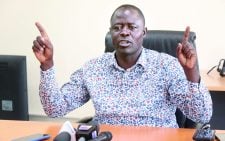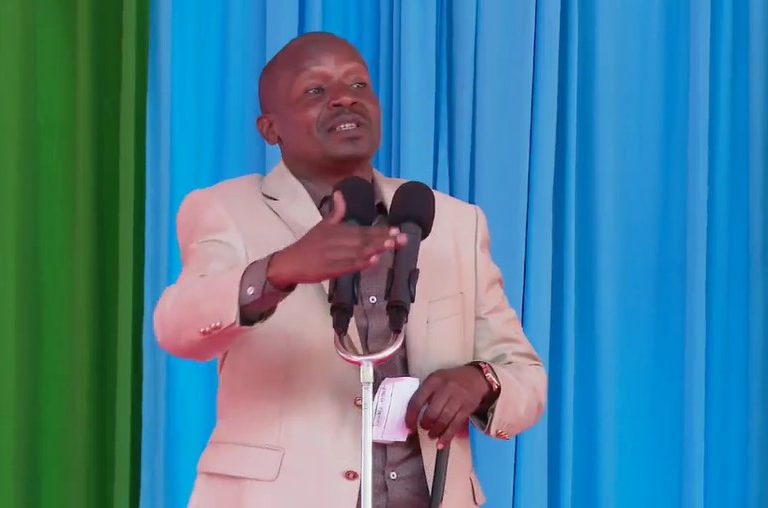Major victory for indigenous people at Biodiversity meet

Indigenous Peoples including the Maasai of Kenya and Tanzania scored a major victory at the United Nations Biodiversity Convention (COP16) in Cali, Colombia, following the creation of a new permanent body for them.
The gain for Indigenous Peoples grants them formal power to influence decisions made UN Biodiversity Convention. Indigenous communities such as the Maasai have for thousands of years been the caretakers of the environment, protecting their lands and respecting wildlife.
Experts aver that indigenous communities can offer a more sustainable solution to advancing conservation, and at a lower cost through the biodiversity protection roles that they play.
“It is still painfully clear that there is still much to be done for Indigenous Peoples and local communities (IPLCs), according to World Bank specialists Erwin De Nys and Asyl Undeland. “IPLCs around the world continue to struggle to preserve their unique cultures, customs, identity, and well-being.”
Equitable process
During the International Union for Conservation of Nature (IUCN) Africa Protected Areas Congress in Kigali, Rwanda in 2022. A call to action was issued requesting all stakeholders to ensure just, equitable and fair processes that will deepen the involvement of IPLCs.
Ensuring IPLC rights and welfare is a moral imperative, but it also has important implications for effective climate action. Forest ecosystems inhabited by IPLCs have consistently better-preserved biodiversity, water, and other natural resources.
Despite this evidence, and their heritage of living and protecting forest ecosystems, IPLCs continue to face challenges to their participation in decision-making processes over issues that affect their lives and livelihoods – as well as in the distribution of benefits from initiatives implemented in their territories.
Second, explain the experts, despite the continued struggles with the vested interests encroaching on and grabbing their lands and undermining their human rights, IPLCs remain the true custodians of forest ecosystems.
IPLCs hold or claim as traditional territories equivalent to almost 50 percent of the land area surveyed globally by Rights and Resources Initiative (IRRI) in 2020, representing almost 80 percent of global biodiversity.
Forests
Furthermore, almost a quarter of the carbon stored in the world’s subtropical and tropical forests is in collectively managed territories with great potential for mitigation.
Involving IPLCs in managing these ecosystems is therefore vital.
However, despite the big win for Indigenous Peoples, the nature summit in Colombia produced mixed results, with disagreement on how to raise and manage funding for nature protection.
Negotiators at COP16 also weakened a draft decision on climate change and biodiversity, after removing a mention of the global commitment to “transition” away from fossil fuels agreed at last year’s UN Climate Change Conference (COP28) in Dubai, United Arab Emirates.
The Cali conference ended abruptly last Saturday morning after a marathon final session stretching to 11 hours. Countries at the nature summit realized that with smaller country delegations had left with not enough governments in the plenary to approve further decisions.
Sebastian Rodriguez and Mariel Lozada, writing in the authoritative UK-based Climate Home News, said some progress had made in addition to the new permanent body for the Indigenous Peoples.
They said a new “Cali Fund” was established channel voluntary contributions from the private sector to compensate countries for the commercial use of genetic material from plants and animals, noting: “But no common ground was found on the most pressing issue facing governments – how to close the gap in biodiversity finance.
Monitoring framework
As time ran out, countries also failed to approve a technical set of indicators – known as the “monitoring framework” – to assess progress on national targets and plans to protect nature.
The meeting was suspended and the UN Biodiversity Secretariat said governments world need to reconvene before the next COP in years, due to be held in Armenia, to resolve pending issues.
Lack of agreement on future funding for nature conservation around the world could hold back government efforts to present updated national biodiversity plans – which are a critical tool for meeting a global goal to protect at least 30 per cent of the world’s land and water ecosystems by 2030.
This goal is the cornerstone of the international nature pact, the Kunming-Montreal Global Biodiversity Framework, adopted at the Convention’s 196 Parties in Montreal in 2022. “Governments in Cali put forward plans to protect nature but were unable to mobilize the money to actually do it,” said An Lambrechts, head of delegation for Greenpeace at COP16. “Biodiversity finance remains stalled.”
WWF International Director-General Kristen Schujit said the outcome “jeopardizes the implementation of the Montreal convention goals, warning “we’re now veering dangerously off-track.”
Colombia’s Environment Minister and COP16 President highlighted the positive aspects of the summit her country hosted – for which more than 23,000 delegates registered – saying it had managed to “raise the political profile of biodiversity.”
The lack of agreement on finance and monitoring framework, “leaves some challenges for the biodiversity convention that will have to be resolved,” she added.
“Discussions there were always polarised and remained that way.”
According to Rodriguez and Lozada, unlocking more and better finance was a key challenge for the two-week talks – but very little fresh cash was forthcoming and the closing plenary failed to reach agreement on whether to set up a new fund to channel the money before losing quorum, leaving discussions up in the air.










